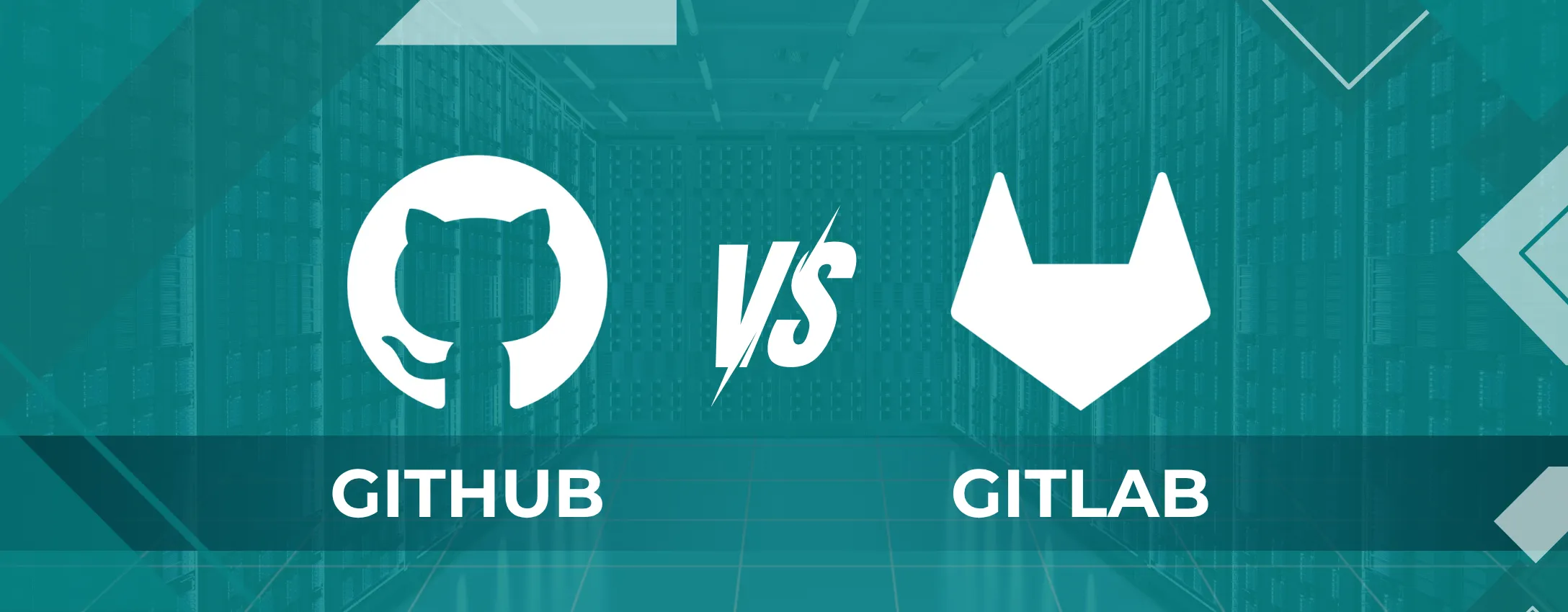
Oh, this isn’t your usual comparison blog. The perspective you’ll find here is something you probably haven’t seen in other GitHub vs GitLab breakdowns.
Software development acts fast. Collaboration tools aren’t just for storing code; they shape how groups build, take a look at, and develop.
Two structures lead the way: GitHub and GitLab.
Both are robust. Both redefine version control, CI/CD, and DevOps management.
Startups use them to move quickly. Enterprises depend upon them to manipulate complicated structures. The proper desire can remodel productivity and teamwork.
This guide breaks it all down: clean comparisons, real use instances, and insights that go beyond the fundamentals.
What is GitLab?
GitLab is a DevOps platform designed to take ideas from concept to manufacturing — in a single application.
Launched in 2011, it commenced as an easy web-based Git supervisor.
Since then, it has grown right into a full-scale DevOps solution, assisting groups in planning, coding, testing, and deploying more quickly.
With GitLab, groups can monitor development, automate workflows, and deliver software efficiently — all without switching tools.
Key Features of GitLab
Here are the standout features that make GitLab unique:
1. Complete DevOps Lifecycle
GitLab isn’t only a code repository; it’s a unified platform for:
- Planning: Issue tracking, agile boards, and project-making plans tools.
- Development: Collaborate through code opinions, control adjustments with merge requests, and keep the whole lot organized with version management.
- CI/CD: Automate your testing and deployment with the use of built-in pipelines that preserve transport, rapid, and constant.
- Security: Identify risks early with incorporated SAST, DAST, and dependency scans that shield your codebase.
- Monitoring: Track overall performance, spot errors speedily, and maintain visibility across each level of your utility.
You can literally go from idea → code → deployment → monitoring without ever leaving GitLab.
2. Integrated CI/CD Pipelines
GitLab’s native CI/CD pipelines are among its most powerful features. Developers can automate checking out, deployment, and transport immediately inside the platform using easy .gitlab-ci.yml documents.
This reduces the need for a third-party CI/CD system and simplifies automation setup.
3. Issue Tracking and Project Management
GitLab provides Kanban-style forums, milestones, labels, and issue monitoring capabilities to help groups control responsibilities and sprints correctly. It’s tremendously appropriate for Agile and DevOps teams that need the entirety in a single area.
4. Built-in Container Registry
GitLab includes a stable Docker field registry, permitting techies to build, store, and set up container snapshots seamlessly. This integration streamlines container-based development and deployment workflows.
5. Strong Security and Compliance
GitLab offers security scanning at every stage of the pipeline:
- Static and dynamic code analysis
- License compliance checks
- Secret detection and vulnerability management
This makes it a perfect platform for companies that prioritize compliance and DevSecOps practices.
6. Self-Hosting and Cloud Options
You can select between GitLab SaaS (GitLab.com) or GitLab Self-Managed. The latter offers businesses full management over their infrastructure — best for firms with strict statistics and safety policies.
What is GitHub?
GitHub is the world’s most famous code web hosting platform and collaboration hub for developers. Founded in 2008 and acquired with the aid of Microsoft in 2018, GitHub is synonymous with open-source improvement and collaborative coding.
At its core, GitHub is constructed around Git, the disbursed version control system created by Linus Torvalds. What makes GitHub effective is its massive network, intuitive UI, and considerable environment of integrations.
While GitHub began as an easy hosting carrier for repositories, it has evolved into a whole improvement surrounding presenting challenge control, CI/CD, security scanning, and community engagement.
Key Features of GitHub
1. Repository Hosting and Version Control
GitHub lets groups host, control, and collaborate on code without difficulty using Git. It helps public and private repositories, together with department management and pull requests for clean collaboration.
2. Pull Requests and Code Review
Pull Requests (PRs) are at the heart of GitHub’s collaboration model. They enable:
- Inline commenting and code reviews
- Discussion threads
- Approval workflows before merging
GitHub’s review tools help teams keep strong code quality. Its branch protection rules make peer collaboration smoother.
3. GitHub Actions for CI/CD
GitHub Actions fetch proper automation into your repository. Launched in 2019, it facilitates developers constructing, checking, and setting up code without leaving GitHub. No more CI/CD software required.
4. GitHub Copilot
- GitHub Copilot is an AI-powered coding associate that works alongside developers in real time.
- It suggests snippets, completes features, or even writes complicated logic primarily based on context.
- By understanding your coding patterns, Copilot enables reducing repetitive work and speeds up the complete development process.
5. GitHub Discussions and Wikis
GitHub fosters community interplay via Discussions, Wikis, and Projects—making it not only an effective improvement device but also a collaborative hub for open-source groups and inner groups alike.
6. Marketplace and Integrations
Need to connect your favored tool? GitHub’s Marketplace has it all. From task forums like Jira and Trello to cloud powerhouses like AWS and Azure — it all works together, seamlessly.
7. Enterprise-Grade Security
GitHub provides advanced security features such as:
- Secret scanning and code vulnerability alerts
- Dependabot for dependency updates
- Code scanning powered by semantic analysis
GitHub supports companies of every sizes with its Cloud and Enterprise server services with strong safety and compliance.
What Are the Distinctions Between GitLab and GitHub?
Although both platforms are powered by Git, they take very various paths. From ideology to functionality, each one is designed for a distinct type of development team.
Here are the important areas of difference:
1. Core Philosophy
GitHub specializes in openness and teamwork.
It connects techies globally and powers the open-source environment.
The platform encourages teamwork through pull requests, discussions, and shared projects.
GitLab, then again, aims to simplify the entire DevOps method.
It brings coding, checking out, CI/CD, and deployment into one unified platform.
Its goal is to make software delivery faster, more secure, and easier to manage — all from a single dashboard.
2. CI/CD Integration
GitHub makes use of GitHub Actions for CI/CD automation.
It’s bendy and integrates nicely with other tools but is still a non-obligatory add-on.
Teams often use third-party solutions to extend their automation capabilities.
GitLab turned into a build with CI/CD at its middle.
Pipelines are included from the start, allowing automatic trying out and deployment without more setup.
This makes it a robust preference for teams that need nonstop transport and performance.
3. Project Management
GitHub offers simple tools for task tracking and collaboration.
Its project boards, issues, and labels work well for small or mid-sized teams.
GitLab goes further with advanced project management.
It consists of Agile capabilities like milestones, epics, sprints, and roadmaps.
This makes it best for larger groups running structured development cycles.
4. Hosting Options
GitHub is mainly cloud-based.
It also offers Enterprise Server for agencies that need on-premise website hosting.
This flexibility fits both tech providers and massive corporations.
GitLab provides more control.
Teams can use it in the cloud, on-premise, or inside their very own infrastructure.
It’s regularly favored by establishments that need custom environments or strict compliance management.
5. Pricing and Plans
GitHub offers free access for public repositories.
Its paid plans unlock advanced collaboration and enterprise features.
It’s affordable for small teams and widely accessible for open-source work.
GitLab gives users more in its free tier — including private repositories and CI/CD pipelines.
However, advanced DevOps and security tools are part of its premium plans.
It’s cost-effective for teams that need robust automation from the start.
6. Security and Compliance
GitHub emphasizes open-source security.
Tools like Dependabot help manage vulnerabilities, and secret scanning protects sensitive data.
GitLab builds protection directly into the development workflow.
It includes SAST, DAST, license compliance, and vulnerability control out of the box.
This makes it a sturdy fit for businesses with strict compliance requirements.
7. Community and Ecosystem
GitHub is the world’s biggest developer network.
Its open-source environment fuels innovation and collaboration throughout hundreds of thousands of projects.
It’s the cross-to platform for tech professionals looking to examine, proportion, and build collectively.
GitLab has a smaller but committed community.
It’s trusted by using firms for its flexibility and all-in-one technique.
The platform’s open-core version additionally allows for deeper customization and self-hosted innovation.
In short, GitHub shines in network collaboration and simplicity, while GitLab excels in DevOps automation and management.
The pleasant desire relies upon your group’s priorities — whether that’s open-source synergy or end-to-end DevOps performance.
GitLab vs GitHub: Comparison
| Feature | GitHub | GitLab |
|---|---|---|
| Founded | 2008 | 2011 |
| Owner | Microsoft | Independent (GitLab Inc.) |
| Focus | Collaboration and open-source community | Full DevOps lifecycle management |
| CI/CD | GitHub Actions (add-on) | Built-in native CI/CD |
| Project Management | Basic project boards | Advanced Agile tools (epics, sprints, milestones) |
| Security Tools | Dependabot, secret scanning | SAST, DAST, license compliance, vulnerability scanning |
| Self-Hosting | Available (Enterprise Server) | Fully supported and flexible |
| Container Registry | Via integrations | Built-in Docker registry |
| Community Support | Largest developer community | Smaller but enterprise-focused community |
| Integrations | Extensive marketplace ecosystem | Native DevOps integrations |
| Pricing | Free + Paid tiers | Free + Premium + Ultimate plans |
| Best For | Team coding and shared projects | Enterprises, CI/CD automation, full DevOps workflow |
GitHub vs GitLab: Which One Should You Choose?
Alright, the big question — GitHub or GitLab?
Both platforms are amazing, but the right one relies upon what your group desires, how you work, and where you’re headed subsequently.
Let’s break it down.
When GitHub Just Feels Right
It’s built for developers who love open-source, who want to share, make contributions, and develop collectively.
You’ll love GitHub if you:
- Work with open-source projects or public repos
- Value a huge, active developer community
- Need smooth integrations with tools and cloud services
- Appreciate a simple UI with AI help from GitHub Copilot
GitHub just makes teamwork easy — ideal for startups, agile teams, and devs who thrive in community-driven environments.
When GitLab Is the Smarter Bet
If your aim is to convey the whole DevOps cycle into one location, GitLab is your tool.
It’s more than just model management — it’s planning, coding, checking out, and deploying beneath one roof.
You’ll want GitLab if you:
- Need a complete DevOps platform
- Rely on built-in CI/CD and security scanning
- Prefer hosting your own setup for compliance
- Manage large, complex tasks with a couple of pipelines
GitLab offers you visibility, control, and automation — the whole thing firms and DevOps teams need to transport speedy without losing structure.
In short:
- GitHub is community-first.
- GitLab is process-first.
Both are powerful — but the best one is the one that fits how your team builds.
Conclusion: A Real-Time Solution
In actual-world situations, the choice regularly comes all the way down to workflow integration in place of function count number.
- GitHub excels in collaboration, open-supply visibility, and ease.
- GitLab dominates in automation, DevOps pipeline management, and scalability.
Many contemporary improvement groups even combine both, using GitHub for open-source website hosting and GitLab for internal DevOps workflows.
Ultimately, the exceptional platform is the only one that aligns together with your development dreams, group dynamics, and deployment method.
If your cognizance is on innovation, CI/CD automation, and end-to-end visibility, GitLab is probably your go-to.
But in case your team thrives on community collaboration and simplicity, GitHub stays the trusted leader.
Need help choosing or implementing the right platform? Hire a software development company skilled in GitHub and GitLab.









